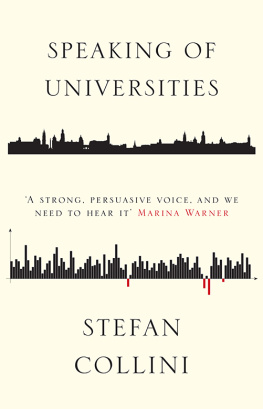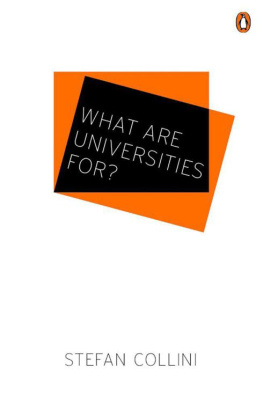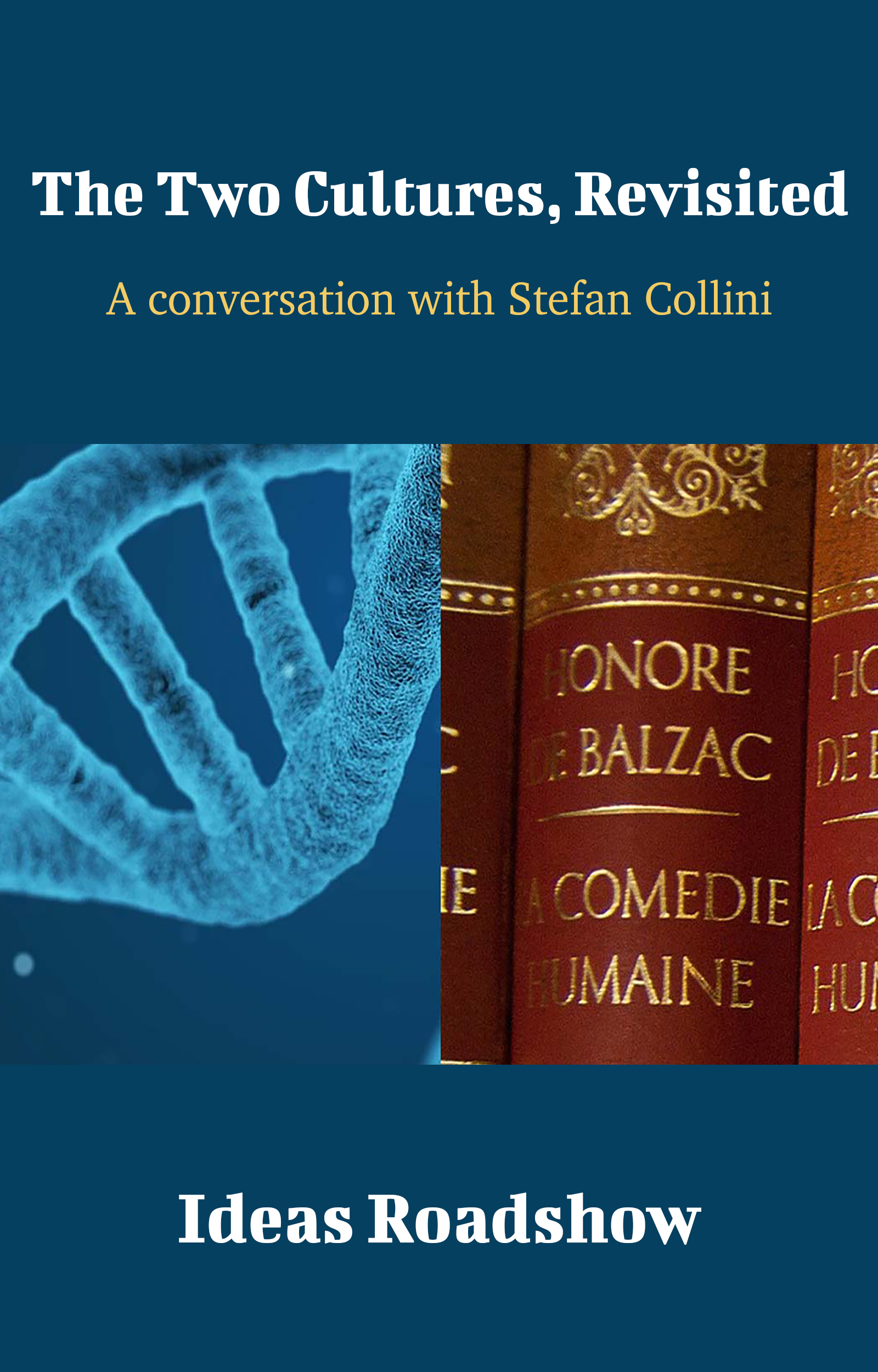The contents of this book are based upon a filmed conversation between Howard Burton and Stefan Collini in Durham, North Carolina, on April 19, 2013.
Introduction
Returning to the Source
In what surely must rank as the acme of literary reviews, The Observer once famously remarked that Eric Hobsbawms comprehensive historical tetralogy on the long 19th century had become part of the mental furniture of educated Englishmen.
The French have an expression for such a thing: culture gnrale. This carries a decidedly different semantic hue than our rather more pedestrian common knowledge. After all, common knowledge is what everybody is supposed to possess just by living in the world around them, while culture gnrale is what a cultivated person should have at her fingertips, the hard-earned result of a solid, well-rounded education that will enable the well-educated soul to make sense of the world around her.
But sometimes this goes awry, as it occasionally happens that by the time an idea has worked its way into the public consciousness, the context has been hallowed out into little more than a misleading clich.
So it was, for me at least, with The Two Cultures, the celebrated phrase that originated in the 1959 Rede Lecture that C.P. Snow gave at the University of Cambridge.
I thought I knew what The Two Cultures was all about. Indeed, during my time spent as an evangelical academic administrator, I had quite often explicitly invoked its core message of the need to somehow bridge the increasing gap between the sciences and the humanities so that they can both sufficiently flower.
The trouble was, however, that this wasnt actually the core message of the work at all, a state of affairs that I was happily unaware of since, like most who now glibly refer to The Two Cultures, I had never actually taken the time to read Snows lecture. Nor, as it happens, did I know anything about the famously acerbic attack that his principal antagonist, F.R. Leavis, launched against him three years later.
Which was a real shame. Not just because an unread text is a dangerously shaky foundation upon which to build an argument (which is certainly true), but also because the famously tempestuous exchange between Leavis and Snow still has much to teach the reflective observer more than fifty years later.
University of Cambridge literary critic and intellectual historian Stefan Collini, suffice it to say, has studied the exchange in considerable detail, supplying thoughtful and comprehensive introductions to the recently reissued texts of both Snows 1959 lecture and Leavis 1962 response.
So what was it actually all about?
I think what Snow was most animated by was the thought that the application of technology to bettering the world is going to become more and more important: to feeding those in the less prosperous parts of the world, to developing the economies of the more prosperous parts of the world and so on.
And he was very concerned that the people who were in a position of influence and power in Britainnot just in Britain, elsewhere as well, but he mainly concentrates on Britain in that lecturewere, by and large in his view, not scientifically trained, not really familiar enough with the possible benefits of science and how scientific thinking worked. And so he believed that many of the advantages of the use of science and technology were just not going to be realized, that people who were ignorant of them were going to be making the wrong sorts of decisions.
Well, that seems unproblematic enough, if admittedly a far cry from the typical arts vs. science academic battlefield that I had long imagined that The Two Cultures represented. But what on earth could have possibly provoked F.R. Leavis to respond to this so aggressively? And who was Leavis anyway?
Leavis was a particular kind of literary critic. He passionately believed in the power of great literature to open up our world and our experience if read sufficiently attentively and with the kind of disciplined attention that an education in English literature could give you.
But he didnt believe in the kind of scholarly apparatus, the over-emphasis on knowledge about the biographical or contextual details. He believed very much in the personal response to it, if it was of the right disciplined kind. He had become a really quite fearsome controversialist, because he always wanted to press anybody he engaged with, What do you really believe? How do you respond to this?
So then he read this lecture by Snow, and he was appalled. He was appalled, first of all, because he thought that the uptake of Snow, the success that the lecture had, showed how devalued and empty a lot of the categories of public acceptance really were. If people thought that this was a serious analysis of a serious problem, in other words, then were in trouble.
But for Leavis, it was much more than simply a matter of taking Snow to task over his pompous and superficial style. What really infuriated him was Snows banal and uncritical reduction of the aims of human life to nothing more than mere economic self-sufficiency.
What people dont remember about Leavis attack is that it was not just a personal attack on Snow, or even on Snows reputation. Leavis, too, is fundamentally preoccupied with what we as a society posit as the ends of human life. What are the values and purposes we should really be striving for?
He says, The picture you get from Snows lecture about this is really a kind of empty prosperity. He picks up a phrase that Snow uses rather lightly in his own lecture: the only goal is jam today and more jam tomorrow a kind of vacuous prosperity that has got no sense of whats worthwhile, whats really a human form of flourishing. And he maintains that Snow is complicit in this, that Snow is endorsing this.
We find ourselves, suddenly, a long, long, way from the question of whether or not undergraduate humanities students should be forced to take a Physics for Poets course as part of their standard curriculum.
We are also, as it happens, squarely in Stefan Collinis wheelhouse. For Stefan is not only a trenchant intellectual historian, he is also a passionate advocate for critical public engagement on a number of pressing societal issues, with many deeply penetrating views of his own.










